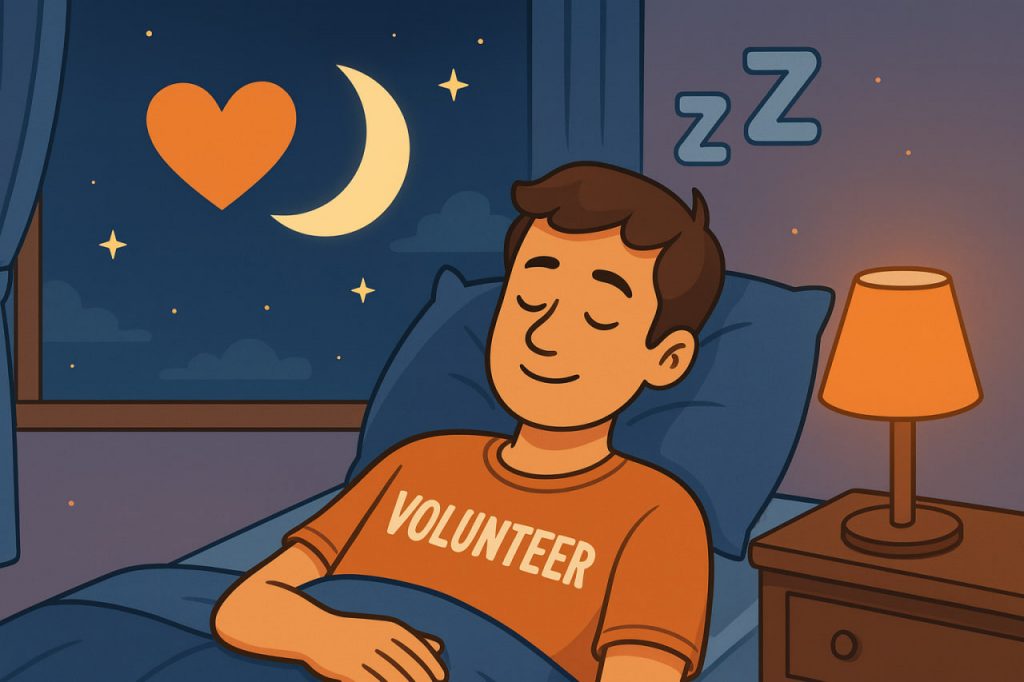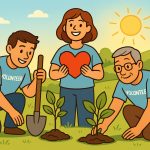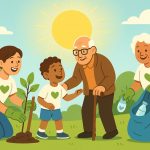Volunteering not only strengthens communities and builds empathy — it also has a profound effect on one of the most vital aspects of human health: sleep. Studies increasingly show that people who engage in regular volunteer work tend to sleep better, fall asleep faster, and experience deeper rest. The reasons are both psychological and physiological: helping others reduces stress, boosts positive emotions, and balances the body’s natural rhythms.
Emotional Calm and Mental Balance
A major reason volunteering improves sleep lies in its impact on mental health. Acts of kindness and community service trigger the release of endorphins and oxytocin, hormones that promote relaxation and happiness. At the same time, volunteering lowers levels of cortisol, the stress hormone that disrupts sleep cycles. By reducing anxiety and giving life a sense of purpose, volunteering helps calm the mind before bedtime — a crucial factor for those who struggle with insomnia or restlessness.
Sense of Purpose and Routine
Volunteering often brings structure to a person’s daily or weekly schedule, and regular routines are one of the key foundations of healthy sleep. When people have meaningful goals, their internal circadian rhythms — the body’s natural clock — become more stable. Volunteers tend to wake up and go to bed at more consistent times, which enhances sleep efficiency and energy levels during the day. A sense of accomplishment also reduces late-night rumination, helping the brain unwind naturally.
Physical Activity and Sleep Quality
Many forms of volunteering include light to moderate physical activity: planting trees, delivering aid, or organizing community events. This movement promotes better blood circulation and supports healthy fatigue — a natural prerequisite for restorative sleep. Physical effort during the day increases the production of melatonin, the hormone that signals the body it’s time to rest. People who volunteer outdoors additionally benefit from sunlight exposure, which regulates sleep-wake cycles and boosts mood.
Emotional Fulfillment and Reduced Insomnia
Loneliness and social isolation are among the leading causes of poor sleep, especially in older adults. Volunteering counteracts these effects by providing social interaction and emotional support. Being part of a community creates feelings of connection and belonging, which are essential for psychological comfort. As a result, volunteers report fewer sleep disturbances and wake up feeling more refreshed and positive.
Scientific Observations
Research from Harvard University and other institutions found that people who volunteer at least 100 hours a year report significantly better sleep than those who don’t. They fall asleep faster, experience fewer nighttime awakenings, and feel more energetic in the morning. These effects are consistent across different age groups and social backgrounds, suggesting that volunteering’s benefits extend universally to human well-being.
A Virtuous Cycle of Health
Better sleep leads to higher energy, which in turn motivates people to continue volunteering — creating a positive feedback loop. Rested individuals are more empathetic, patient, and resilient. Thus, volunteering not only improves personal sleep quality but also contributes to a more balanced and caring society. In this sense, every act of kindness can be seen as an investment not just in others’ happiness, but also in one’s own physical and emotional restoration.
Interesting Facts
- Volunteers report up to 20% better sleep satisfaction compared to non-volunteers.
- Helping others releases oxytocin, the “bonding hormone,” which naturally induces calmness and relaxation.
- Exposure to daylight during outdoor volunteer work helps synchronize melatonin production, improving nighttime rest.
- People who feel socially connected experience 30% fewer sleep disruptions on average.
Glossary
- Melatonin — a hormone that regulates the sleep-wake cycle.
- Cortisol — a stress hormone that, in high levels, can cause insomnia.
- Circadian rhythm — the body’s internal biological clock that manages sleep and wake patterns.
- Endorphins — chemicals in the brain that create feelings of pleasure and reduce pain.
- Oxytocin — a hormone associated with social bonding and emotional calm.


